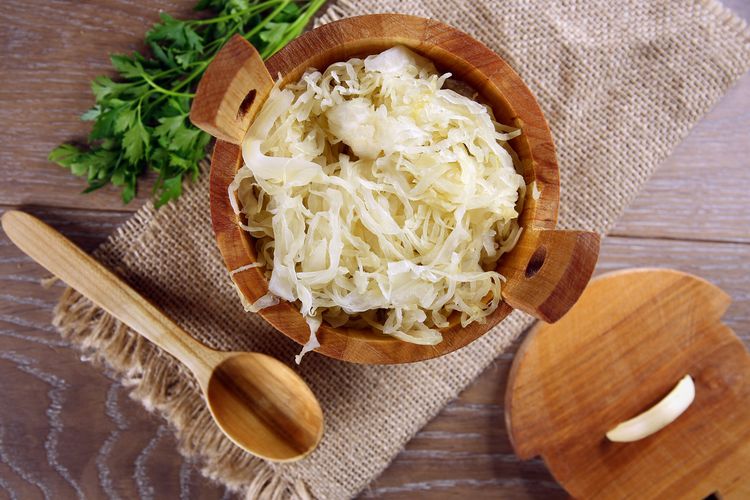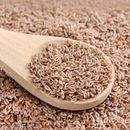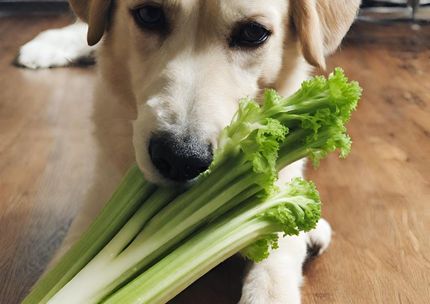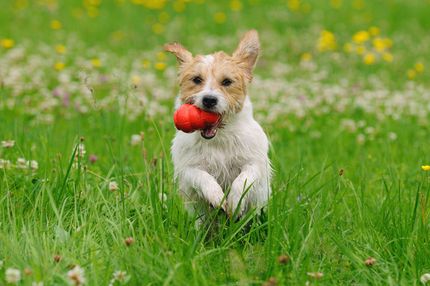The traditional German food, sauerkraut, is known far beyond the borders of our cuisine for its health-related benefits. It is often used as a remedy for digestive problems in humans. But what about our furry friends? Can you give sauerkraut to dogs, and to what extent?
Benefits of sauerkraut for dogs
Yes, it is confirmed: Dogs can consume sauerkraut. It is as beneficial for them as it is for us humans. This fermented cabbage is a powerhouse, packed to the brim with antioxidants and a variety of vitamins - from vitamin A to K. If you own a dog, you should keep sauerkraut on hand in your kitchen. Why? It could be invaluable in the event of an ingested foreign object!
The therapeutic effect of sauerkraut on dogs
Sauerkraut, often referred to as a superfood, not only provides dogs with essential vitamins, but also promotes balanced intestinal flora.
For constipation
If the dog is plagued by constipation, cooked sauerkraut can help. Cooking activates certain digestive enzymes that facilitate the digestive process. To prepare it, just wash the sauerkraut thoroughly and then boil it - and please, refrain from using any spices! The cooked cabbage can be easily mixed with regular food.
For diarrhea
Raw sauerkraut can be beneficial for diarrhea symptoms. This is due to the lactic acid bacteria, which ensure a balanced intestinal flora. The procedure is similar: unwrap sauerkraut, rinse thoroughly and mix directly into the feed.

A deeper insight
It is well known that both sauerkraut and its juice are used in traditional medicine as natural remedies for intestinal problems.
The right amount
Despite its many health benefits, sauerkraut should not be considered a main source of food for dogs. It can be fed occasionally in moderate amounts. Especially if your dog has never had sauerkraut before, start with a small portion and watch his reaction. Excess can cause abdominal pain or bloating.
First aid tactics for ingested items.
Dogs are curious creatures and tend to swallow things that are not meant for consumption. In such cases, sauerkraut can form a protective layer around the swallowed item, preventing injury to the digestive system.
Caution
If the dog swallows a dangerous object, contact a veterinarian immediately before giving him sauerkraut. A veterinarian can better assess the case and decide if surgery is necessary.
A look at sauerkraut
Sauerkraut is nothing more than fermented white cabbage. The fermentation process, made possible by the use of salt and pressure and the activity of lactic acid bacteria, transforms cabbage into the nutritious sauerkraut we know.
Wine sauerkraut? An absolute no-no!
It is important to emphasize that wine sauerkraut, which contains white wine in the fermentation process, is absolutely unsuitable for dogs.
When it comes to feeding dogs, it is important to make sure that they are only given foods that are safe for them. While some foods that are suitable for human consumption may be fine for dogs, there are others that should be avoided at all costs. One such example is wine sauerkraut.
What is wine sauerkraut?
Wine sauerkraut is made by fermenting white cabbage in the presence of white wine. It has a characteristic taste and is often used in German cuisine. The added element that distinguishes it from regular sauerkraut is white wine.
Why is wine sauerkraut dangerous for dogs?
Alcohol content: the main reason why wine sauerkraut is not suitable for dogs is the white wine. Alcohol in any form is toxic to dogs. Even small amounts can lead to alcohol poisoning. Symptoms of alcohol poisoning in dogs include vomiting, difficulty breathing, coordination problems, and in the worst cases, it can even lead to death.
Grapes and Raisins: White wine is made from grapes. It is known that grapes and raisins are toxic to dogs and can cause kidney damage. Although the exact toxin in grapes and raisins that is harmful to dogs is unknown, it is best to avoid them completely.
Additional ingredients: Wine sauerkraut may also contain other ingredients and spices that can be harmful to dogs. Onions and garlic are two examples of ingredients commonly used in cooking that are toxic to dogs.
Sauerkraut for puppies
Young dogs should not be given sauerkraut as it can be difficult for their developing digestive system to digest. It is better to wait until the dog is fully grown.
Dogs can benefit from the advantages of sauerkraut, but it should be given judiciously and in moderation. In case of foreign bodies, it is a valuable first aid remedy, but a veterinarian should always be consulted.


















